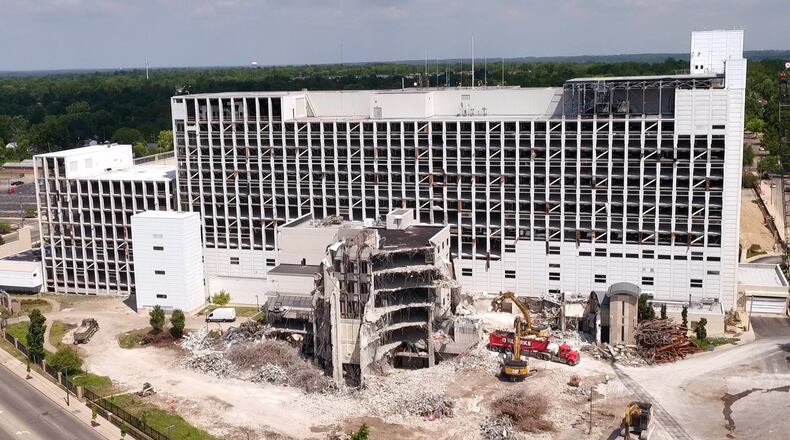RELATED: A year later, hospital system stands behind Good Sam closing
Montgomery County Administrator Michael Colbert said the county serves as “a conduit for bond issuance for all hospital and healthcare systems in the county, which allows local hospitals to raise capital to finance operations and make investments in our community.”
“This is a service that we provide to all local healthcare systems, such as Dayton Children’s Hospital, Premier Health and Kettering Health Network, and which benefits the entire community,” he said.
Ellis Jacobs, an attorney representing the Clergy Community Coalition, said the county should not have assisted with issuance of the bonds because Premier’s closure of Good Sam in 2018 had “a disparate impact on the black community and that is race discrimination.”
The U.S. Department of Health and Human Services is investigating a complaint filed by the clergy coalition against Premier over the closure in a neighborhood that Jacobs said is 75 percent African-American.
RELATED: Good Sam civil rights complaint: 5 things to know"In the past six years Premier has built or expanded 16 significant medical facilities, including those which are financed and refinanced by these bonds, in the Miami Valley," Jacobs said in the letter to the county. "Every one of them was in a predominantly white community. Not a single facility was opened or expanded in the African-American community."
Premier, which owns Miami Valley Hospital and other area health care facilities, has said it closed the West Dayton hospital because of the cost of maintaining an outdated facility, declines in the city’s population and a consumer shift to outpatient services.
RELATED: These top 5 companies drive Dayton-area economy
A spokesman for the hospital system said the bond sale was a way to consolidate debt for its recent capital projects.
“As part of the common practice of issuing and selling bonds, we can devote this money toward various existing and future capital, equipment and improvement projects,” said Ben Sutherly, Premier system director of communications.
Sutherly said Premier is cooperating with the HHS probe and believes the allegations lack merit.
“We do not discriminate against anyone in the provision of healthcare services. As a 501(c)3 nonprofit organization, we provide millions of dollars in uncompensated care each year to the indigent in the community,” Sutherly said. “We believe that our entire community continues to have access to quality healthcare services, including near the former Good Samaritan Hospital campus.”
Experts: Police deadly force limited to threat of death, serious bodily harm
County leaders question success claims after coroner’s official resigns
“Do something” demand after Dayton shooting fuels support for Ohio gun law change
$130M school expansion could help businesses find more workers
PHOTOS: The bodies of women found in a drug-infested neighborhood. Dayton struggles for answers
Two drug deaths from one family. Says mom: ‘It was like living in hell’
About the Author

